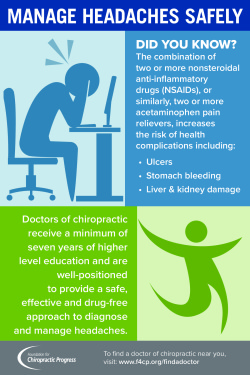Are Chiropractic Adjustments Compulsive? Setting Apart Reality From Misconception
Are Chiropractic Adjustments Compulsive? Setting Apart Reality From Misconception
Blog Article
Posted By-Brennan Corbett
You could have heard that chiropractic care adjustments can cause an addicting reliance, but that's a typical mistaken belief. recommended find alleviation without developing any kind of addiction. It is necessary to understand truth purpose of these modifications and how they match your total health approach. So, exactly what does the scientific research say about chiropractic care and your wellness? Let's check out the facts.
Comprehending Chiropractic Adjustments and Their Objective
When you think of chiropractic modifications, it's essential to comprehend their purpose and just how they work. These changes aim to fix misalignments in your back and joints, promoting better positioning and movement. By using regulated force to particular locations, chiropractic doctors aid reduce pain, improve function, and boost your overall well-being.
Chiropractic treatment focuses on your body's capability to recover itself, emphasizing the connection between the spinal column and the nervous system. When your back is lined up, it can decrease nerve interference, allowing your body to operate optimally.
Routine modifications may additionally aid avoid future problems, maintaining you energetic and pain-free. Ultimately, chiropractic care adjustments serve to sustain your wellness, improve mobility, and boost your lifestyle.
Common Myths Concerning Dependency and Chiropractic Care Treatment
Many individuals hold mistaken beliefs about the connection in between chiropractic care and addiction therapy. One typical myth is that chiropractic changes develop an addiction-like reliance. In truth, many clients find remedy for pain and discomfort, however this doesn't indicate they create a psychological or physical dependency.
Another myth is that chiropractics physician are simply attempting to keep you returning for even more adjustments. Most chiropractic doctors prioritize your well-being and aim for long-term health and wellness as opposed to regular sees.
Additionally, some think chiropractic treatment can change conventional addiction therapies, but it must enhance, not replace, evidence-based treatments. Comprehending these myths can assist you make notified options regarding your health and wellness without dropping victim to misinformation.
The Science Behind Chiropractic Care Adjustments and Client Experience
While some might examine the effectiveness of chiropractic modifications, a growing body of research study sustains their duty in easing pain and improving total feature.
Research studies suggest that back control can minimize pain from problems like reduced back pain, tension frustrations, and neck pain. When Continue Reading undergo chiropractic treatment, the adjustments intend to restore correct placement, boosting your body's natural healing capacities.
Numerous clients report enhanced movement and a better feeling of wellness after treatment. In addition, the healing relationship you construct with your chiropractic practitioner can improve your experience, as they provide tailored care tailored to your requirements.
This mix of clinical support and positive individual experiences aids clarify why chiropractic care modifications are effective for numerous people looking for relief.
Final thought
To conclude, chiropractic adjustments aren't addictive; they're developed to enhance your wellness and advertise positive health care. By unmasking the myths bordering dependence, it's clear that these therapies can supply substantial alleviation without creating a cycle of addiction. Welcoming chiropractic care as a corresponding method to standard treatments can bring about better wellness outcomes. So, if click the up coming website page taking into consideration adjustments, felt confident that they have to do with improving your quality of life, not developing a dependence.
